Related Research Articles
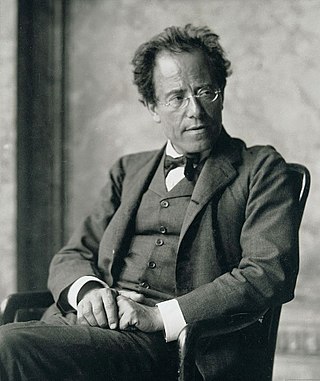
Gustav Mahler was an Austro-Bohemian Romantic composer, and one of the leading conductors of his generation. As a composer he acted as a bridge between the 19th-century Austro-German tradition and the modernism of the early 20th century. While in his lifetime his status as a conductor was established beyond question, his own music gained wide popularity only after periods of relative neglect, which included a ban on its performance in much of Europe during the Nazi era. After 1945 his compositions were rediscovered by a new generation of listeners; Mahler then became one of the most frequently performed and recorded of all composers, a position he has sustained into the 21st century.
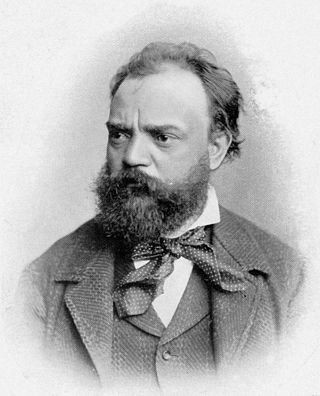
Antonín Leopold Dvořák was a Czech composer. He frequently employed rhythms and other aspects of the folk music of Moravia and his native Bohemia, following the Romantic-era nationalist example of his predecessor Bedřich Smetana. Dvořák's style has been described as "the fullest recreation of a national idiom with that of the symphonic tradition, absorbing folk influences and finding effective ways of using them," and Dvořák has been described as "arguably the most versatile... composer of his time".
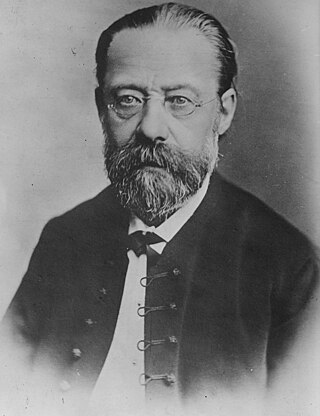
Bedřich Smetana was a Czech composer who pioneered the development of a musical style that became closely identified with his people's aspirations to a cultural and political "revival". He has been regarded in his homeland as the father of Czech music. Internationally he is best known for his 1866 opera The Bartered Bride and for the symphonic cycle Má vlast, which portrays the history, legends and landscape of the composer's native Bohemia. It contains the famous symphonic poem "Vltava", also popularly known by its German name "Die Moldau".
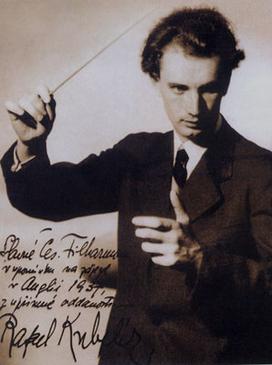
Rafael Jeroným Kubelík, KBE was a Czech conductor and composer.

Vítězslav Augustín Rudolf Novák was a Czech composer and academic teacher at the Prague Conservatory. Stylistically, he was part of the neo-romantic tradition, and his music is considered an important example of Czech modernism. He worked towards a strong Czech identity in culture after the country became independent in 1918. His compositions include operas and orchestral works.

Josef Mysliveček was a Czech composer who contributed to the formation of late eighteenth-century classicism in music. Mysliveček provided his younger friend Wolfgang Amadeus Mozart with significant compositional models in the genres of symphony, Italian serious opera, and violin concerto; both Wolfgang and his father Leopold Mozart considered him an intimate friend from the time of their first meetings in Bologna in 1770 until he betrayed their trust over the promise of an operatic commission for Wolfgang to be arranged with the management of the Teatro San Carlo in Naples. His closeness to the Mozart family resulted in frequent references to him in the Mozart correspondence.

The Symphony No. 8 in G major, Op. 88, B. 163, is a symphony by Antonín Dvořák, composed in 1889 at Vysoká u Příbramě, Bohemia, on the occasion of his election to the Bohemian Academy of Science, Literature and Arts. Dvořák conducted the premiere in Prague on 2 February 1890. In contrast to other symphonies of both the composer and the period, the music is cheerful and optimistic. It was originally published as Symphony No. 4.

Erwin Schulhoff was an Austro-Czech composer and pianist. He was one of the figures in the generation of European musicians whose successful careers were prematurely terminated by the rise of the Nazi regime in Germany and whose works have been rarely noted or performed.

Jiří Bělohlávek, was a Czech conductor. He was a leading interpreter of Czech classical music, and became chief conductor of the Czech Philharmonic Orchestra in 1990, a role he would serve on two occasions during a combined span of seven years. He also served a six-year tenure as the chief conductor of the BBC Symphony Orchestra from 2006 to 2012. He gained international renown and repute for his performances of the works of Czech composers such as Antonín Dvořák and Bohuslav Martinů, and was credited as "the most profound proponent of Czech orchestral music" by Czech music specialist Professor Michael Beckerman.
Nikolai Nikolayevich Karetnikov was a Russian composer of the so-called Underground – alternative or nonconformist group in Soviet music.
Necil Kazım Akses was a Turkish classical composer.

The Symphony No. 5 in F major, Op. 76, B. 54, is a classical composition by Czech composer Antonín Dvořák. It was originally published as Symphony No. 3.

The Symphony No. 4 in D minor, Op. 13, B. 41, is a classical composition by Antonín Dvořák.

The Symphony No. 3 in E♭ major, Op. 10, B. 34, is a classical composition by Antonín Dvořák.
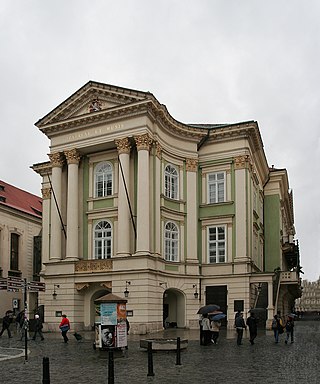
There is no question that the Praguers of the late eighteenth century exhibited a special appreciation for the music of Wolfgang Amadeus Mozart, even though, as pointed out by Daniel E. Freeman, confirmations of this fact attributed to Mozart himself in sayings such as "Meine Prager verstehen mich" have only come down to posterity second or third hand. Perhaps the most valuable direct testimony that attests to the discernment of the musical public in Prague with regard to Mozart's music comes from Lorenzo Da Ponte, the librettist of Mozart's opera Don Giovanni, which was first performed in Prague:
It is not easy to convey an adequate conception of the enthusiasm of the Bohemians for [Mozart's] music. The pieces which were admired least of all in other countries were regarded by those people as things divine; and, more wonderful still, the great beauties which other nations discovered in the music of that rare genius only after many, many performances, were perfectly appreciated by the Bohemians on the very first evening.

Antun Dobronić was a Croatian composer and pupil of Vítězslav Novák. He studied at the Prague Conservatory from 1910 to 1912. From 1922 to 1940, he served as professor at the Zagreb Academy of Music. His works show a strong streak of Croatian nationalism, which also is manifest in his writings on music. He sought to integrate high culture music techniques with traditional Croatian folk elements.
The Symphony in C major, WWV 29, from 1832 is the only completed symphony of Richard Wagner.
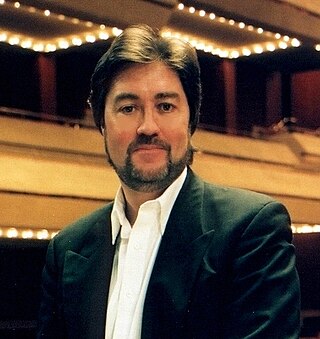
Geoffrey Moull is a Canadian professional conductor. He was principal conductor of the Bielefeld Philharmonic Orchestra and music director of the Thunder Bay Symphony Orchestra.
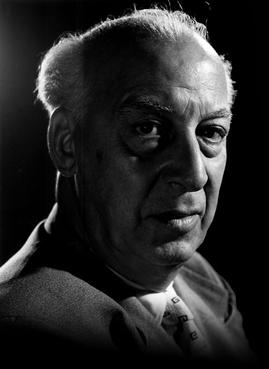
Tranquillo Manoah Leide-Tedesco was an Italian-American composer, conductor and violinist.
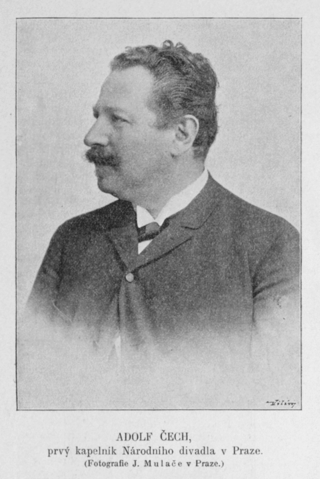
Adolf Čech was a Czech conductor, who premiered a number of significant works by Antonín Dvořák, Bedřich Smetana, Zdeněk Fibich and other Czech composers. He also led the first performances outside Russia of two operas by Pyotr Ilyich Tchaikovsky and the Czech premieres of seven operettas by Jacques Offenbach. He was also a bass singer and a translator of opera librettos.
References
- ↑ List of performances of Boosey & Hawkes licensed works on 29/03/94
- ↑ Review of a 2008 LSO/Gergiev performance of the work in classicalsource.com